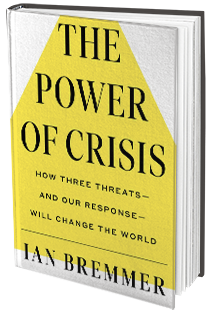Volcanoes are erupting in The Philippines, but on-fire Australia received some welcome rain. The Iran war cries have been called off and The Donald’s military powers are about to be hamstrung by the Senate. Meanwhile, his impeachment trial is starting, and we’re all on Twitter for a front-row seat.
What Could Go Right? Southeast Asia makes money moves
Millions are being lifted out of poverty, and economies are bouncing back post-pandemic.
This is our weekly newsletter, What Could Go Right? Sign up here to receive it in your inbox every Thursday at 6am ET. You can read past issues here.
Southeast Asia’s GDP climb
Southeast Asia is making money moves. Especially Vietnam, which between 2010 and 2020 saw a decline in poverty rate from 16.8 to 5 percent, according to a new report from the World Bank. (That rate defined poverty as living on $3.20 or less per day.) That’s over 10 million people no longer in poverty. And while the pandemic set back the country’s economic progress, the report says, it did not reverse it, and Vietnam’s GDP is still growing. In fact, its “GDP per capita has increased fivefold over the past three decades,” said World Bank Country Director for Vietnam Carolyn Turk. The government is working with the World Bank to reach high-income status by 2045, although, like with any reach goal, there are challenges ahead.
The GDP growth of neighboring countries Cambodia and Laos is on a steep incline, too, while Thailand’s, although climbing, is doing so more slowly. Maybe it will help that Thailand has just softened its notoriously stringent marijuana laws. (Actually, that’s an understatement—the Thai government is sending out one million marijuana plants to households to encourage small-scale medicinal weed businesses.) In the area, only Myanmar is heading in the wrong direction, the result of not only the pandemic but also the February 2021 military coup there.
You may not know that on the whole we’ve done a good job eliminating the worst of world poverty. In 2018, only 9 percent of the global population was living in extreme poverty, defined as living on less than $1.90 per day. In 1950 that rate was 53 percent. “The decline of poverty is the great unreported story of our lifetimes,” The Progress Network (TPN) Member Gregg Easterbrook told us on last week’s podcast episode. “And most of it was caused by globalized trade.”
It’s awesome to see news stories popping up about countries whose economic growth was impeded by Covid-19 starting to rebound. Kenya, for instance, is getting their poverty levels back to where they were pre-crisis, and is expected to make gains again this year. They went from 45.2 percent of their population living in extreme poverty in 2009 (using that $1.90 figure again) to 34.4 percent in 2019. Half a million Kenyans pushed back into poverty during the pandemic left it again last year as the economy began its Covid recovery.
Economics and emissions, a breakup story
As it says below, it’s quiz time! How much have United States greenhouse gas emissions changed in the last 15 years? You can’t cheat by looking below, because over 80% of the people who answered this Twitter poll were wrong.
The correct answer is D, they’ve decreased by about 20%. Yes, really. Proof here. No, that is not enough of a drop for the US to be on the right track vis a vis climate change. But it’s important to know that many rich countries have reduced emissions, and with no cost to economic prospects.
Part of the reason why it has been so hard to bend the curve of global emissions is because developing countries are, well, developing. They have more people who are looking to live life at the quality of people’s lives in rich countries. That’s excellent, but that requires more energy, which means countries are looking to dirty sources to fill energy demand. So our hats off to billionaire Michael Bloomberg for the $242 million he is giving to ten countries for clean energy projects, including two from our economic darlings above, Vietnam and Kenya. (Our latest podcast episode takes a look at the pros and cons of philanthropy, especially in the clean energy space.)
Current global capacity for carbon capture is at 40 million tons. We’re supposed to get to 1.6 billion tons by 2030. It doesn’t take a mathematics genius to see the problem. But, several new carbon capture projects are in various stages of development, and most of them are expected to succeed.
You love drinking a cocktail and helping the Earth. If that sounds like you, this new vodka created from carbon dioxide emissions may be just the thing to put on a birthday list. And, the Republic of Palau has a world-first initiative to reward “good travelers”—not tourists who drop big money, but ones who treat the environment with respect—with unique travel and cultural experiences. We’re sort of tilting our heads at both, but hey. Carbon-negative products as a consumer trend is not a bad thing.
What if we treated guns like cars?
Did you know that the Center for Disease Control (CDC) considers the dramatic reduction in motor vehicle fatalities since the 1960s to be “one of the most substantial public health achievements of the 20th century”? The progress is ongoing. Between 2000 and 2020, according to new data from the CDC, deaths of young people from motor vehicle crashes have dropped nearly 40 percent.
The bad news is that while far fewer young people are dying from car crashes, more are dying from firearm-related accidents. Around five years ago, firearm fatalities among young people began to exceed motor vehicle fatalities for the first time. There are many reasons why, including the fact that firearms “are one of the few products whose safety isn’t regulated by a designated federal agency,” says a paper in the New England Journal of Medicine that draws on the CDC data and contrasts the successful federal response to motor vehicle fatalities to the abysmal one to firearm fatalities.
It’s at least one small step forward that startup Biofire has raised $17 million dollars to develop “smart” guns that will only fire for authorized fingerprints. Such guns are not a “cure-all,” as Biofire’s founder Kai Kloepfer said—they would not have made a difference in the case of the Buffalo shooting, for instance—but they should cut down on the risk of teens and kids accidentally or purposely firing weapons that belong to the adults around them. With new interest from an American public now comfortable with smart technology, other companies are on the case as well. LodeStar Works, for example, plans to sell their first smart gun at the end of 2022.
Smart guns won’t solve everything in a country awash in guns. The New England paper has a few more ideas that might appeal to both sides of the aisle, and we appreciated this old Forbes article for the “why don’t we treat guns like cars?” framing.
Before we go
Greece is the latest country to ban LGTBQ conversion therapy for minors. It joins a list of several others that have done the same this year.
Spain is easing abortion restrictions, allowing paid menstrual leave for the first time, and is eliminating the VAT on menstrual products. Thank you, Spain, for reminding us how ridiculous it is to tax menstrual products as nonessential purchases.
Outrage, what is it good for? Preventing women in Louisiana who have had abortions from being charged with murder, apparently. Louisiana lawmakers have pulled and will revise a stupid bill that, among other stupid things, would subject women and abortion providers to criminal penalties.
Some other quick hits: Inflation may have peaked. Russia may be searching for off-ramps. Policy solves for the baby formula crisis one and two, a reminder why a national industrialist policy isn’t so wonderful, and a much-needed humor release.
Finally, it’s not money you need to be happy. It’s sex, exercise, and . . . gardening.
Below in the links section, solar panels are coming to Ikea and possibly all buildings in Europe, giant drones are fulfilling the promise of flying cars, and more.

Punishing the Symptoms

When the judicial system sticks to the same old script, it misses the chance to resolve the real issues causing crime. Judge Victoria Pratt shares an an example of the alternative methods she invoked during her time as chief judge in Newark Municipal Court in Newark, New Jersey, where she transformed the courtroom into a place that could punish, but also heal. | Read more
The Philanthropic Moment | S2 Ep. 8

Is philanthropy helpful? Looking at the giving data during the pandemic as well as the billionaire class philanthropy trends and small-dollar individual political donations, what are the pros and cons of philanthropy? Joining us in this conversation are Rachel Pritzker, founder and president of the Pritzker Innovation Fund, and David Callahan, founder and editor of Inside Philanthropy, to talk through some of the advantages and disadvantages we see in today’s giving economy. | Listen to the episode
Progress, Please
(Found good news? Tweet at us @progressntwrk or email.)
Other good stuff in the news
Environment:
- The race to produce green steel | Undark
- Wind energy is booming in deep-red Republican states | CNN
- Ford F-150 Lightning: A watershed moment for electric vehicles | Axios
- Solar panels could be on all of Europe’s public buildings by 2025 in phase-out of Russian fossil fuels | Euronews
- The Tesla effect: Snowmobiles, boats, and mowers go electric | The New York Times
- Tesla’s Solar Roof has a new competitor—Ikea | Business Insider
- The unlikely ascent of New York’s compost champion | The New York Times
- Battery-powered Greek island bets on green future | AP
- Birds, beavers, and microparks: experts plan to rewild London | The Guardian
- Biologists buoyed by discovery of 4-metre endangered stingray in Cambodia | The Guardian
- Lessons from panda conservation could help Asia’s other, overlooked, bears | Mongabay
- Tasmania becomes one of the world’s first carbon negative places | Optimist Daily
Science & Tech:
- Google Translate adds 24 new languages, including its first indigenous languages of the Americas | TechCrunch
- These nanobots can swim around a wound and kill bacteria | Wired
- Drones are turning into personal flying machines | Wired
- NASA’s Perseverance rover begins key drive to find life on Mars | BBC
- China discovered rare dinosaur embryos from 66 million years ago | Interesting Engineering
- Tokyo to test automated trains with passengers from October | Japan Today
- How herpes wakes up: Researchers have identified a tiny piece of viral RNA that is key to reactivating the dormant infection | Freethink
Politics & Policy:
- California proposes new funding to help low-income and out-of-state abortion seekers | The Guardian
- New York City plans to screen every student for dyslexia for the first time | Bloomberg
- Biden administration targets housing supply shortage with affordable housing plan | The Wall Street Journal
- Mexico’s Guerrero state becomes ninth to allow abortions | Reuters
- US allows more baby formula imports to fight shortage | AP
Covid and Public Health:
- Third round of free Covid-19 tests now available in the US | NBC News
- Scientists are working on how to grow replacement teeth | WebMD
- US will share Covid-19 vaccine technology | Reuters
- Full-genome screening for newborn babies is now on the cards | The Economist
- Generic drugmakers to sell Pfizer’s Paxlovid for $25 or less in low-income countries | Reuters
- How Covid vaccines have boosted the development of an HIV vaccine | NPR
- Study may help identify infants at risk for SIDS | The Sydney Children’s Hospital Network
- Stem cell therapy set for human trials after reversing Parkinson’s in rats | New Atlas
- FDA clears new test for early detection of Alzheimer’s disease | New Atlas
- How Omicron infection turbo-charges vaccinated people’s immunity | Bloomberg
Society & Culture:
- First black woman confirmed for Fed as central bank enters Biden era | Politico
- How 10 skin tones will reshape Google’s approach to AI | Wired
- Kendrick Lamar releases track about accepting his trans relatives | NBC News
- The Great Resignation: a moment many people traded up for a better-paying gig | The New York Times
- Élisabeth Borne becomes France’s first female prime minister in 30 years | The Guardian
- Jake Daniels becomes first UK male footballer to come out as gay since 1990 | The Guardian
- Buffalo unites to feed ‘food desert’ after mass shooting closes supermarket | The Buffalo News
TPN Member originals ![]()
- Thomas Piketty on why the world keeps getting more equal | Yascha Mounk
- America is starting a New Space Age. And it’s a problem that many Americans don’t know about it | James Pethokoukis
- America’s hidden strength | Eboo Patel
- Why do we swallow what Big Oil and the Green Movement tell us? | Thomas L. Friedman
- What do black Americans think about Roe v. Wade—and why | Theodore R. Johnson
- Beginning of Putin’s end | Ian Bremmer
- Can global economic crises result in better international cooperation? | Ian Bremmer
- Am I proud of my “whiteness”? | John Wood Jr.
- A path to harmony for parents and their adult kids | Arthur C. Brooks
- Stop dismissing the risk of long Covid | Ezekiel J. Emanuel
- Is having children worth it? | Angela Duckworth.
- About that passenger who landed a plane | James Fallows
- Buffalo is part of an unfolding American tragedy | Peniel E. Joseph
- ‘Racism’ has too many definitions. We need another term | John McWhorter
- Non-member add: Why I love the new labor movement | Noah Smith
- In 2022, what nations have made advances in human rights? | Emma Varvaloucas
Become a progress completist with this week’s long list of progress links.
New Book Alert
In this revelatory, unnerving, and ultimately hopeful book, renowned political scientist and TPN Member Ian Bremmer draws lessons from global challenges of the past 100 years—including the pandemic—to show how we can respond to a trio of looming crises: global health emergencies, transformative climate change, and the AI revolution. Drawing on strategies both time-honored and cutting-edge, from the Marshall Plan to the Green New Deal, The Power of Crisis provides a roadmap for surviving—even thriving in—the 21st century.
Learn more about the book and buy it here.
Upcoming Events
- Majority Minority with Justin Gest | Manu Meel | Today
- Automation, Productivity, Work, and the Future | Jason Crawford & Erik Brynjolfsson | May 25
- What Works Summit 2022: Truth & Trust | Michael Green & Zachary Karabell | May 31–June 2
- Breakthrough Dialogue 2022: Progress Problems | Ted Nordhaus | June 22–24
Until Next Time
There’s always money in the rai stone.👇



